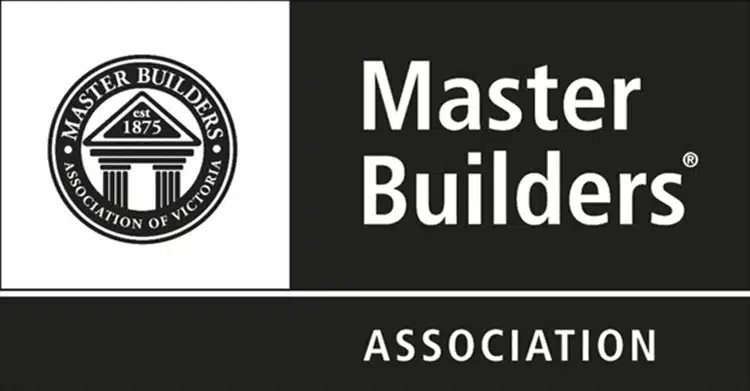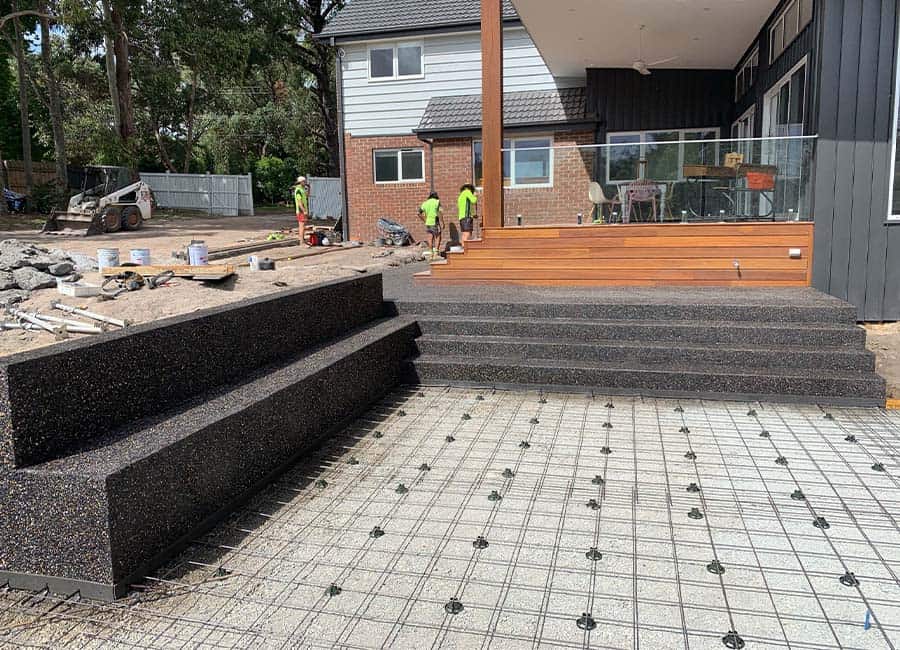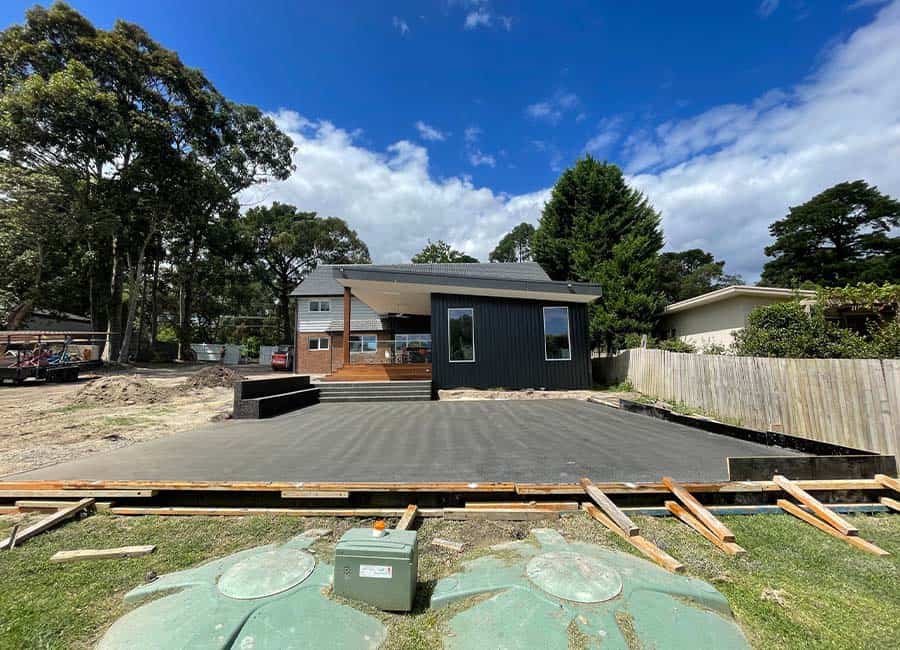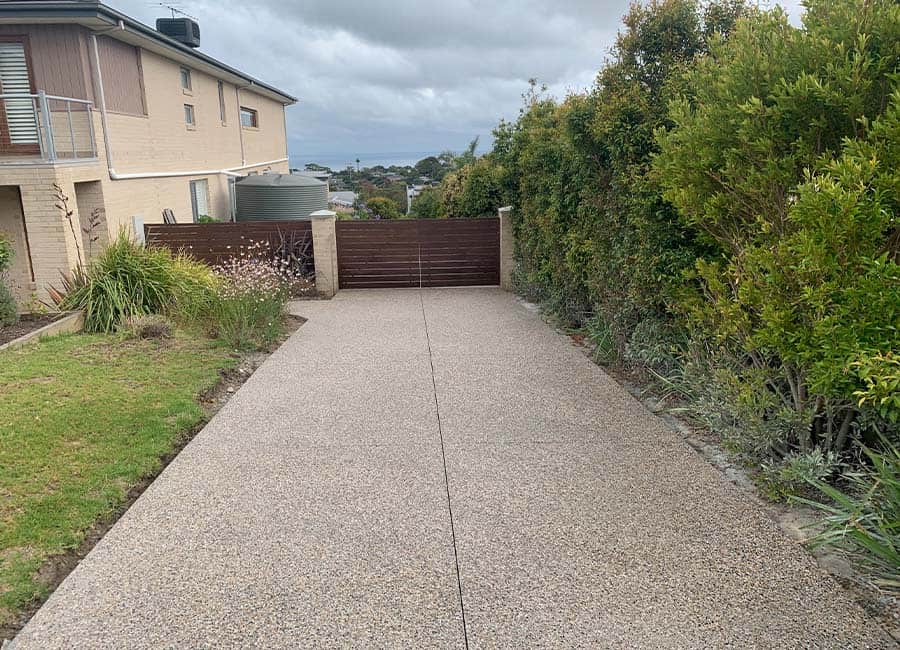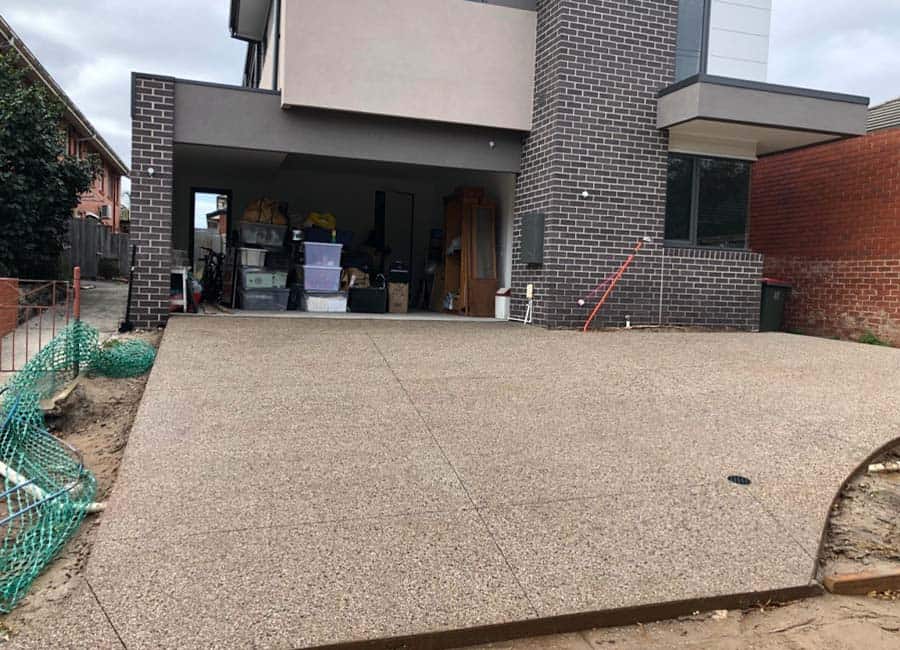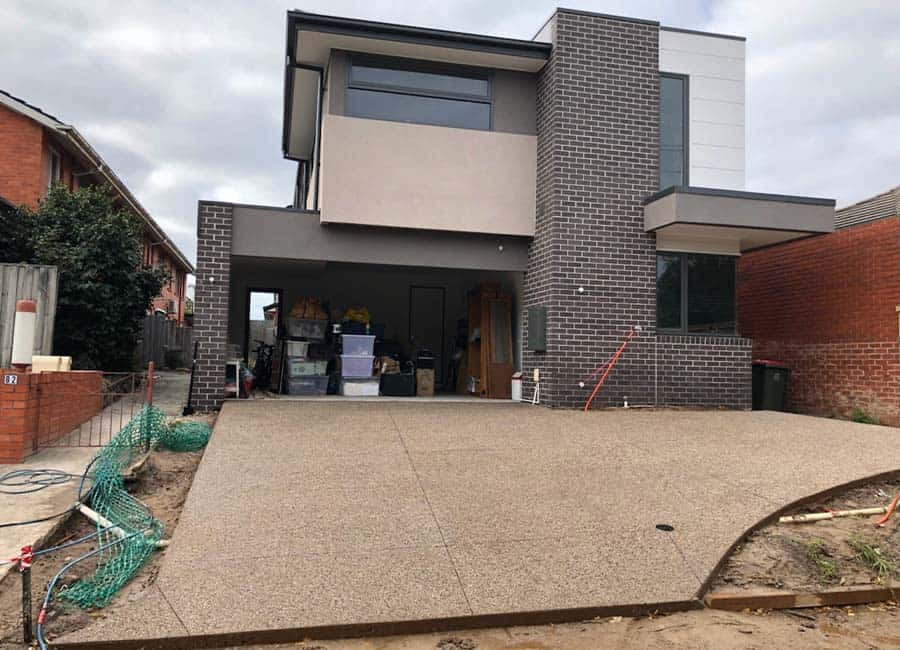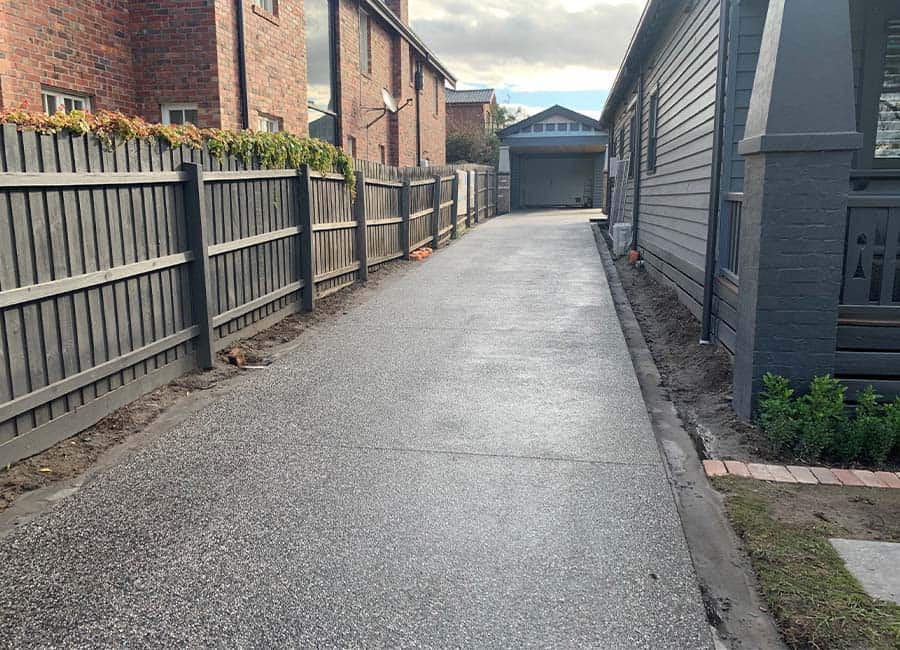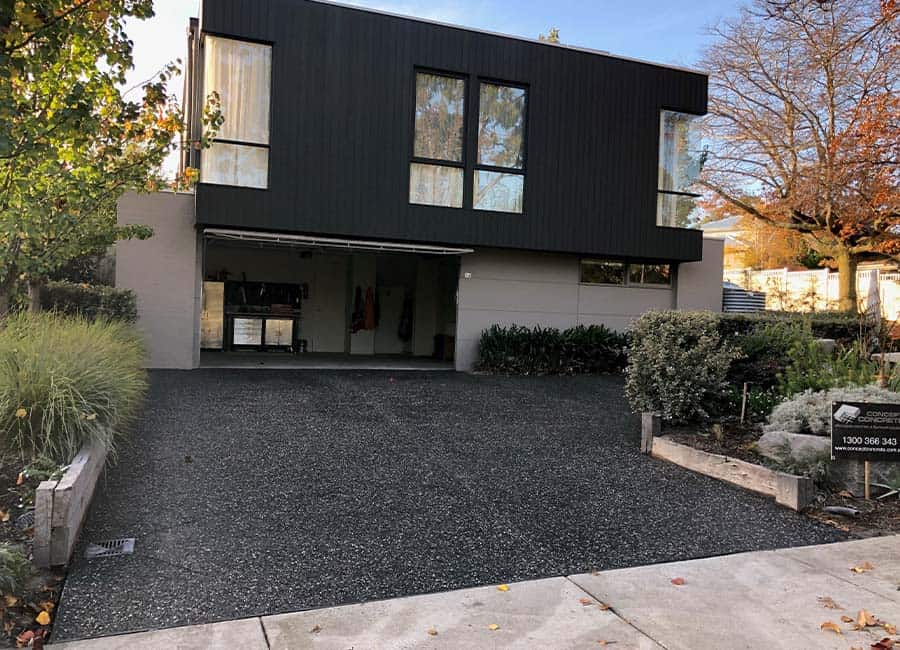Safe, council-approved concrete crossovers for your Melbourne home
Looking to lay a new concrete driveway on your property?
There may be more council red tape to wade through than you realise (don’t worry, we’ll handle it all for you!).
At Concept Concrete we’ve been working with local councils for many years which allows us to plan and install concrete crossovers with safety and confidence.
With a sound understanding of the specifications and requirements to meet your local councils needs and expectations, you can rest easy knowing your driveway meets all regulations and is ready to handle everything you throw at it for years to come.
We offer the following services:
- Crossover widening
- Crossover relocation
- Driveway crossover reinstatement
- New crossover, pedestrian pads and kerb
Looking to learn more about our residential concrete service? Read on for more information or get in touch on 1300 366 343 for more information.
What is a crossover?
A crossover is the connection of an accessway/driveway, from the edge of the property to the road, that often crosses a footpath, nature strip or footpath. Your crossover allows vehicles to move between the property and the road.
Vehicle crossovers are an important element in residential and commercial buildings, as they allow the drive between the garage and the road, safely.
Although a complete crossover might not attract attention, there is plenty of work involved in a council asset replacement. This includes:
- Asset Protection Bond
- Dial before you dig report
- Traffic Management Plan
- Road Opening permit
- Footpath closure permit
- Traffic management
- Public Liability Insurance
If that sounds like the type of council admin you’d rather avoid… you can! At Concept Concrete we manage the process for you so you can sit back knowing you’re staying compliant with council regulations.
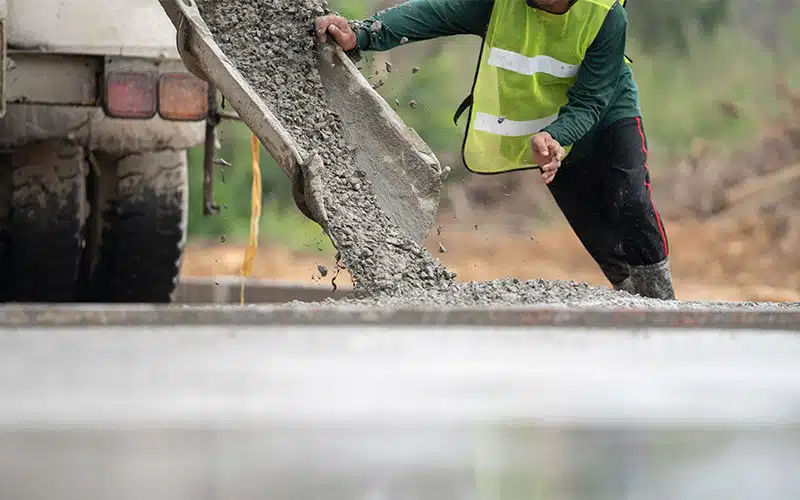
New crossovers and your property
If you’re seeking a new access (or changes to an existing access) from your property, a council planning permit is required. Once a planning permit has been issued by the responsible authority, a vehicle crossing permit and/or road opening permit will still be required from your local council for the works to be undertaken.
Considerations for a crossover
Your local council will consider a number of factors when determining the crossover requirements at your property. This includes:
- How vehicles enter and exit the road
- Proposed crossover design (including location, width, angle and line of sight)
- Existing road conditions (including traffic volume, speed and existing infrastructure)
- Work that might be required by the site developer to make sure the crossover and road network operate safely (including provision of slip lanes, traffic islands, and traffic signals).
- Any traffic management required whilst the works are being undertaken
- Nature strip conditions. During the process it is important to also take into consideration verticity to trees, Telstra pits, electrical pits and council drainage. This is a major consideration from council when determining the width and location of crossovers.
Traffic management plans
Even if consent for works is not required, all works in the road reserve are required to be done safely. This means that the preparation of a traffic management plan is necessary.
A traffic management plan is required to ensure that your work is conducted in a manner that is safe for road users and workers on the road.
At Concept Concrete, we will work with you and your local Melbourne council to ensure the new driveway follows and meets all safety regulations. We will assist with paperwork, insurance requirements and booking of inspections with your local council.
Get in touch on 1300 366 343 for more information or request an obligation-free quote today.
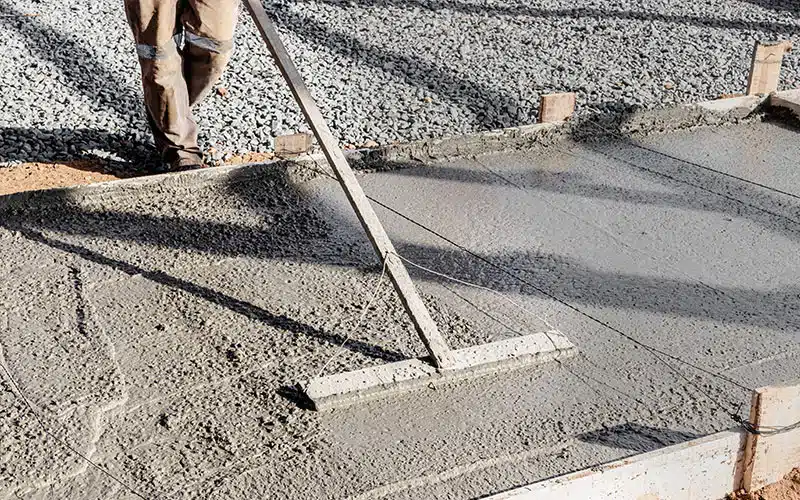
Frequently Asked Questions About Concrete Crossovers in Melbourne
Do I require council approval for my driveway?
You may require council approval for certain types of driveway construction and modifications. The need for approval may depend on factors such as the size of the driveway, the type of materials used, the impact on the streetscape, and any local regulations or restrictions.
Here’s what you should consider:
- Check with your local council: Each council in Melbourne may have its own specific rules and regulations regarding driveways. Check with your local council to determine the requirements and whether you need to obtain approval for your driveway project.
- Permit application: If council approval is required, you will need to submit a permit application. The application may require details about the proposed driveway design, dimensions, materials, and any other relevant information.
- Planning and building regulations: Apart from council approval, your driveway project may also need to comply with other planning and building regulations, including setbacks from property boundaries, slope requirements, drainage considerations, and so on.
- Professional assistance: Depending on the complexity of your driveway project, you might want to seek professional assistance from a local architect, engineer, or a consultant who is familiar with local regulations. They can help ensure your project meets all the necessary requirements.
- Neighborhood considerations: In some cases, your neighbors might also be consulted during the approval process, especially if the proposed driveway construction could have an impact on the surrounding properties.
What guarantees do you offer for this work?
Workmanship Guarantee: This type of guarantee ensures that the concrete work will be performed to a certain standard of quality. If any defects or issues arise due to poor workmanship within a specified period (e.g., 1 year), the contractor will repair or rectify the problems at no additional cost to the client.
Material Warranty: Many concrete suppliers provide warranties on their concrete mixes. These warranties cover the quality and performance of the concrete materials used in the project. If there are issues with the concrete due to material defects, the supplier may replace the concrete.
Cracking Warranty: Some contractors may offer guarantees against excessive cracking in the concrete. This guarantee might vary depending on the type of cracking and its severity.
Settlement Warranty: Certain projects may come with warranties against significant settling or sinking of the concrete that goes beyond normal settling.
Stain Resistance Warranty: For decorative or stained concrete projects, contractors might provide warranties against staining or discoloration.
Sealing Warranty: If the concrete is sealed as part of the project, there might be warranties covering the effectiveness and longevity of the sealant.
Do I require a Traffic Management plan for my concrete crossover?
A Traffic Management Plan is typically required for projects that may affect the normal flow of traffic, pedestrians, or cyclists in the vicinity. These projects may include road construction, maintenance, events, building works near roads, or any other activity that could create traffic hazards or disruptions.
To determine if you need a Traffic Management Plan, consider the following factors:
Project Type: If your project involves any works or activities that will impact the road, sidewalk, or traffic flow, you may need a TMP. This could include excavation near a road, installation of utilities, or any construction activities that require blocking or narrowing a road or sidewalk.
Traffic Disruption: Consider if your project will cause temporary traffic disruptions, lane closures, detours, or changes to traffic flow. If it will, a TMP is likely to be required to ensure the safety of both workers and the public.
Local Regulations: Check with the local council or relevant authorities in your area to find out the specific requirements for Traffic Management Plans. They will be able to provide you with the necessary information and guidelines.
Professional Advice: Seek advice from a qualified traffic management expert or consultant who can assess your project and advise you on the requirements for a TMP.
Safety Considerations: Even if not explicitly required, having a Traffic Management Plan can enhance safety during construction or work activities and minimise disruptions for road users and nearby residents.




